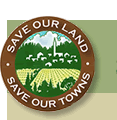Here's to a turkey-free Thanksgiving
Pittsburgh Post-Gazette
Sunday, Nov. 20, 2016
By Thomas Hylton
Can we imagine Thanksgiving without turkey?
Let’s try.
Turkeys have figured prominently in Thanksgiving meals because they are affordable, easy to raise for special occasions, and right-sized to feed an extended family gathering.
Thanksgiving, of course, has been a national holiday since 1863 when Abraham Lincoln proclaimed “a day of thanksgiving and praise to our beneficent father who dwelleth in the heavens.”
Today, Americans have much more reason to be thankful than in Lincoln’s time. Full rights of citizenship have been extended to men and women of all races and creeds. Heated and cooled homes are filled with scores of convenient devices, and the internet provides a cornucopia of knowledge, entertainment, and communication.
But a huge threat to human happiness – indeed, to life as we know it – now looms before us: climate change. This year, the atmospheric concentration of carbon dioxide has reached its highest levels since prehistoric times, already enough to guarantee rising sea levels, accelerating species extinction, and more extreme weather, bringing droughts, forest fires, and flooding.
To avert the most calamitous effects of climate change, humans worldwide will need to reduce their carbon footprint by about two-thirds over the next generation. That’s a stupendous change, but it doesn’t have to mean misery and deprivation.
Indeed, carbon-free lifestyles can make us all healthier and better off. But we’ll need a major adjustment in our thinking and our lifestyles: less driving and more walking, smaller living and working spaces, and the zealous pursuit of conservation and renewable resources.
Most of those better choices will take time to carry out, but there’s one immediate change we can make on Thanksgiving Day: Take a pass on the turkey.
Eating turkey and other meats might be tasty, but from the perspective of human and environmental health, it’s a custom whose time has passed.
Americans eat about 200 pounds of meat per person annually. To do this, we grow and kill nearly 10 billion animals a year (yes, that’s billion with a “b”). There are many reasons this is a bad idea, not all of them obvious.
The first one is animal cruelty. All animals are sentient creatures. They experience fear, they feel pain, and many live very short lives in brutal confinement. We used to think brutality was an unavoidable fact of life, but it doesn’t have to be.
Another is efficiency. We use two to five times as much grain to feed animals that we then kill and eat than to obtain the same amount of healthy calories from simply eating the grain ourselves. (Avoiding the middle man — or middle animal.)
Animals raised in factory farms are routinely injected with antibiotics, which leads to antibiotic-resistant bacteria that threaten human health.
While there’s little scientific evidence that eating lean meats and poultry is bad for human health, there’s no evidence that it’s any better than a careful vegetarian diet. In fact, the life expectancy of Seventh-day Adventists, who generally eat little or no meat, is about four to ten years longer than the average American.
But there’s overwhelming evidence that eating meat is a disaster for planetary health, especially as the amount of meat being eaten worldwide is skyrocketing. Per capita consumption has doubled since the 1960s, and will likely double again by 2050, when the world population will top 9 billion people, requiring an enormous increase in livestock production.
Already, nearly a third of the world’s ice-free land is directly or indirectly involved in raising animals for food, according to the United Nations. Livestock and poultry are major generators of greenhouse gases — largely because of all the methane and nitrous oxide produced by animal manure (one beef cow produces about 15 tons of manure annually) -- but also because of the tropical rainforests cut down to provide grazing land and crops to feed animals.
Moreover, an astronomical amount of water is needed for livestock production. For example, one ton of beef requires 4 million gallons of water to produce. And as climate change alters weather patterns and the human population grows, the United Nations predicts that within 15 years, the world will only have 60 percent of the water it needs.
At present, all these compelling arguments carry little weight in a nation of confirmed meat eaters. Considering that only 3 percent of Americans are vegetarians, trying to wean more people off meat might seem like Mission Impossible.
But the same could have been said of cigarettes five decades ago, when the Surgeon General first linked smoking to lung cancer. Years of public service campaigns have reduced the ranks of smokers from 42 percent in 1965 to less than 17 percent today.
We know the planet cannot sustain raising and killing tens of billions of animals globally every year. What better time to reform our eating habits than Thanksgiving? As President Reagan said in his farewell address, “All great change in America begins at the dinner table.”
|

